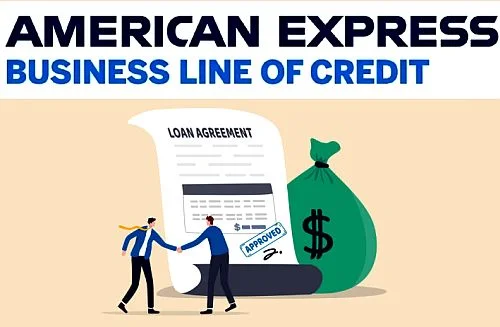Car Insurance Companies
Car insurance is an essential financial responsibility for numerous individuals across America, as operating a vehicle without it is against the law, particularly in regions where public transportation options are scarce outside of major metropolitan areas.
The cost of car insurance can be significant, particularly for new drivers or those insuring high-end vehicles. Nevertheless, insurance coverage can mitigate the risk of substantial financial losses in accidents or theft.
Auto Insurance Provider
A top-notch auto insurance company offers comprehensive coverage, competitive pricing, and exceptional customer service. While affordability is crucial in selecting a Car Insurance Companies provider, it should not be the sole consideration.
Opting for a company with a strong track record of customer satisfaction ensures a seamless and stress-free claims process. Additionally, a reputable Car Insurance Companies provider will extend discounts as a gesture of appreciation to responsible and loyal customers.
Various factors influence the selection of the finest car insurance companies. Select categorizes the leading auto insurance providers into six primary groups in this analysis.
auto insurance company(Refer to our methodology for a detailed explanation of how we selected the best car insurance companies.)
Top car insurance companies
- Most economical: Geico
- Highest customer satisfaction: State Farm
- Broadest coverage: Nationwide
- Minimum coverage: Auto-Owners
- Best discounts: Amica
- For high-risk drivers: Progressive
- For military members and veterans: USAA
1- Best for affordability
Geico is the top choice for budget-conscious individuals seeking car insurance, providing the most affordable average premiums for minimal and comprehensive coverage. With 16 discounts, Geico encourages policyholders to prioritize safe driving habits, enrol in defensive driving courses, and insure multiple vehicles.
Moreover, Geico extends its services to encompass a variety of insurance products, such as homeowners’ and renters’ insurance, enabling customers to bundle policies and enjoy additional savings conveniently.
The typical yearly premium for comprehensive coverage amounts to $1,353.
2- Best for customer satisfaction
According to market share data from the National Association of Insurance Commissioners (NAIC), State Farm is the largest auto insurance company in the United States. It has a track record of consistently earning the highest average J.D. Power score among major insurers, establishing itself as the preferred choice for customer satisfaction.
The typical yearly premium for comprehensive coverage amounts to $1,480.
3- Best for wide coverage
Nationwide boasts one of the broadest coverage networks among Car Insurance Companies providers, extending its services to 46 states and the District of Columbia (excluding Alaska, Hawaii, Louisiana, and Massachusetts).
This expansive reach is noteworthy, as increased competition among companies often reduces customer premiums. Additionally, Nationwide sets itself apart with its usage-based insurance program, SmartMiles.
The typical yearly premium for comprehensive coverage amounts to $1,422.
4- Best for minimum coverage
Auto-Owners presents a cost-efficient solution for individuals searching for minimal coverage, with an average annual premium as low as $325. Stubby Select has recognized Auto-Owners Insurance as a prominent selection for young adult drivers and seniors. However, coverage is available in only 26 states.
The typical yearly premium for comprehensive coverage amounts to $1,361.
Readmore what type of insurance is humana gold plus June 2024
5- Best for discounts
Amica stands out as an exceptional option due to its extensive array of discounts, offering 18 distinct opportunities for savings. Notably, there are discounts specifically designed for young drivers, including incentives such as driver training and good student discounts.
Further savings can be obtained for vehicle-related attributes such as anti-theft systems, electronic stability control, and safety features like forward-collision warning. Amica also provides discounts through bundling home and auto insurance, insuring multiple vehicles, and choosing to pay the entire premium upfront.
The average annual premium for comprehensive coverage stands at $1,467.
6- Best for high-risk drivers
Progressive is a leading preference for insurance among high-risk drivers, notably individuals with a DUI or DWI on their records. Despite the typically elevated insurance premiums for high-risk drivers, Progressive offers more competitive rates compared to other insurers.
Following a DUI or DWI, the average full-coverage premium is $2,049, highlighting Progressive’s commitment to providing relatively lower rates for this specific group of drivers.
The average yearly premium for comprehensive coverage amounts to $1,642.
7- Best for military members and veterans
USAA stands out for its outstanding performance across multiple dimensions. Firstly, it provides the most budget-friendly average premiums. Moreover, its emphasis on customer satisfaction is equally noteworthy, acknowledging the significance of a seamless claims process.
USAA consistently earns the highest J.D. Power customer satisfaction scores, guaranteeing a dependable experience. Its consistently affordable rates and top-notch customer service ratings make it a preferred choice for bundling cheap homeowners insurance.
However, it’s crucial to note that USAA is exclusively available to military personnel, veterans, and immediate family members.
The average annual expense for comprehensive coverage amounts to $1,361.
A closer look at some of the leading auto insurance providers:
Established in 1936, Geico has emerged as a prominent figure in the auto insurance industry. Its sustained prosperity is attributed to its cost-effective premiums and relatively high customer service ratings.
- The NAIC complaint index, which rates complaints (1 indicates average), stands at
- 1.35, indicating complaints above average. Geico’s
- J.D. Power rating is 857 out of 1,000, reflecting a positive customer satisfaction score. Additionally, it holds an
- A++ rating from
- A.M. Best.
The different types of Car Insurance Companies coverage
Auto insurance encompasses five primary types of coverage that can be integrated into your policy, each providing different levels of protection in the event of a loss.
The foundational coverage is liability coverage, mandated in most states, which safeguards against damage and bodily injury. You can include additional coverage to your policy according to your preferred level of protection. Below is a summary of these choices:
- Liability Coverage: Often mandated in most states, this coverage consists of two types—bodily injury liability and property damage liability—protecting against injuries and property damage.
- Collision Coverage: This coverage caters to repair costs from collisions with objects rather than other vehicles.
- Comprehensive Coverage: Designed to safeguard your vehicle from damage caused by incidents not involving other vehicles, such as theft, weather-related damage, and vandalism.
- Personal Injury Protection: This coverage handles your medical expenses and lost income from an accident.
- Uninsured Motorist Coverage: This coverage protects your vehicle from hit-and-run accidents.
Premium Car Insurance Companies
Every Car Insurance Companies provider assesses the factors uniquely influencing your premium. The favourable rate obtained by someone you know might not necessarily align with your circumstances. Begin your search by considering companies with whom you already have existing relationships, such as your homeowners’ or renters’ insurance provider. Bundling your coverage could lead to cost savings.
Insurance Requirements
Obtain multiple quotes tailored to your Car Insurance Companies needs to identify the most suitable option. As car insurance serves as a form of financial protection, it is prudent to opt for a policy that matches or surpasses your net worth (the total value of your assets minus any debt).
Once you’ve determined the appropriate coverage amount, gather quotes from various insurers while maintaining consistency in limits, coverage options, and deductibles. Through this comparison, you can pinpoint the most cost-effective premium.










